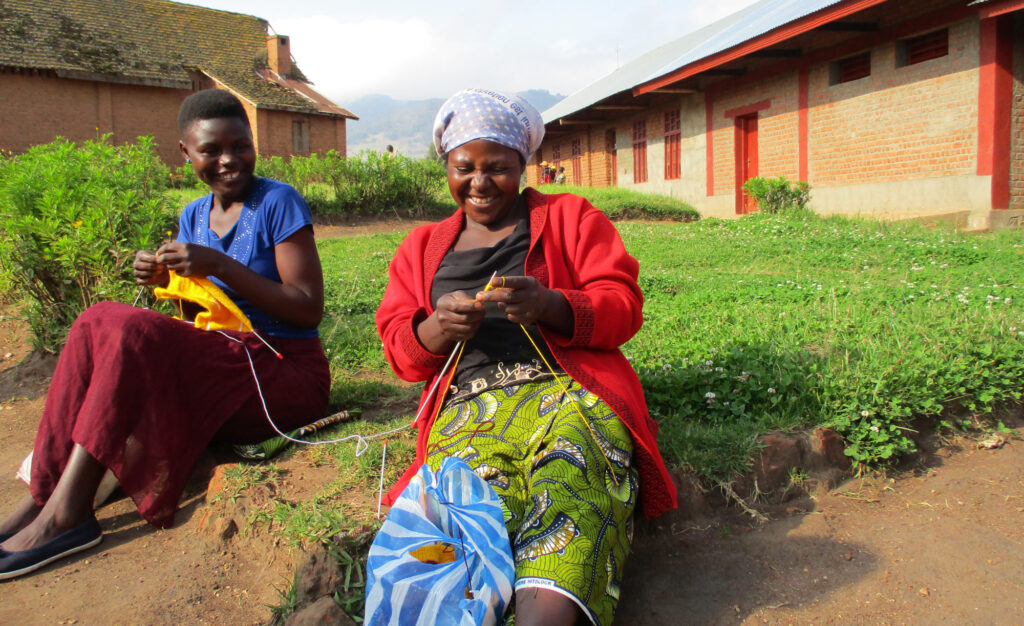
Democratic Republic of the Congo
Years after the official end of a decade-long civil war in the DRC, violence remains pervasive throughout the eastern part of the country, sexual abuse of women and children continues to escalate and millions lack access to basic healthcare.
International Medical Corps has worked in the DRC since 1999, providing primary and secondary healthcare, capacity-building, prevention and treatment of violence against women and girls, nutrition support, social and behavioural change, food security programs, mental health and psychosocial support (MHPSS), and water, sanitation and hygiene (WASH) services. In recent years, we have responded to multiple outbreaks of disease, including Ebola, measles, polio, COVID-19 and mpox.
International Medical Corps is currently serving communities in remote and hard-to-reach areas in Kasai, Kinshasha, North Kivu and South Kivu provinces. We have served more than 2 million people in the DRC, many of whom have been affected by armed conflict.
115.4 million
73 deaths
per 1,000 live births
59/64
male/female
The Challenges
Our Response
Healthcare
International Medical Corps currently supports more than 30 health centres and hospitals across four health zones in DRC, providing essential drugs, medical supplies, training, and referral and transfer of patients who need specialised care.
Given the considerable gaps in primary healthcare services in the areas we serve, we focus on providing a comprehensive and integrated primary care package, including immunisation campaigns, advancement of maternal and child health, and improved environmental sanitation and hygiene practices at targeted health facilities. We also support capacity-building within these health centres to ensure that treatment quality remains high.
Mobile Medical Clinics
International Medical Corps responds to urgent healthcare needs with mobile teams composed of medical doctors, nurses, pharmacists, psychologists, hygienists, sexual-violence case workers, and logistics and security staff. The teams provide no-cost, holistic and high-quality healthcare. At our mobile clinics, we also conduct health surveillance, monitoring the spread of communicable diseases and supporting early warning systems in the event of an outbreak.
Maternal and Newborn Care
Our obstetric gynaecological (OB-GYN) care is especially important in the DRC, where the cause of nearly all obstetric complications is either poor medical care or rape. Our programmes increase the quality and availability of maternal and newborn care, as well as the uptake of these services—significantly improving long-term health outcomes for women and children. Our staff has provided more than 200 health areas in the DRC with maternal-and newborn-care services, education and counselling for sexual assault survivors and newborn-care supplies for health facilities and communities.
Sexual Violence Prevention and Treatment
Since 2002, International Medical Corps has helped lead the battle against conflict-related violence affecting women and girls in war-ravaged eastern DRC. International Medical Corps provides protection, child protection and other services, including establishing women’s and girls’ safe spaces, training paralegals to provide legal services and providing psychological first aid and other support to survivors of such violence.
International Medical Corps supports efforts by more than 18 community-based organisations and health facilities to strengthen core services for survivors of sexual violence, particularly quality case-management and psychosocial-support services.
Nutrition
International Medical Corps provides nutrition services in communities of North Kivu and South Kivu provinces, helping thousands of children recover from malnutrition. Our services treat severely and moderately malnourished children and adults—particularly pregnant and lactating women—and support livelihood interventions.
To help parents take ownership of their families’ nutritional needs, we provide nutritional education and training to help people cultivate staple crops. Our teams also support procurement, transportation and distribution of nutrition supplements, such as ready-to-use therapeutic food and therapeutic milk. We also provide monitoring tools to health facilities to help staff members recognise and treat malnutrition.
Research
Through partnerships with the DRC government, donors and academic institutions, International Medical Corps works to generate knowledge while supporting local communities. Examples include the participation of an International Medical Corps-managed Ebola treatment center (ETC) in the PALM trial during the country’s 10th Ebola outbreak, which led to the identification of groundbreaking therapeutics; carrying out vaccine hesitancy studies on Ebola and COVID-19 to support vaccination programmes; and participating in a cohort study with Johns Hopkins University to examine the relation between nutritional status and COVID-19 outcomes.
Ebola Outbreaks
Thanks to our extensive experience helping to lead the response to the 2014 West African outbreak, the DRC asked for our help in 2018 when the deadly virus struck in the country’s Équateur region. We helped quell that outbreak—the country’s ninth—by July of that year, but in August another outbreak occurred along the war-torn eastern edge of the country that would grow to become the second-largest in world history. To find out more, click the link below.
Learn moreHealing in Action: Photos from the Frontlines of Congo’s Health Crisis
Armed conflict in the Democratic Republic of Congo (DRC) has disrupted the lives of millions who are now sheltering with host families and in camps around the country. The conflict has contributed to instability and poverty, decreasing access to healthcare, increasing malnutrition rates and causing widespread food insecurity. International Medical Corps is deploying mobile medical clinics to provide emergency care to the people of Fizi health zone—one of the most active sites of armed conflict.
READ MORE